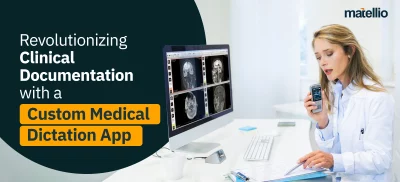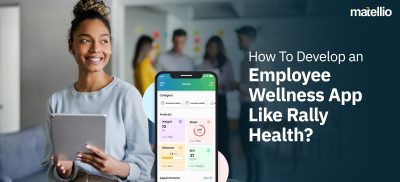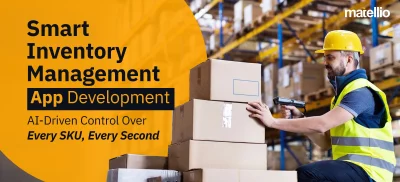
One of the most significant things to attract the right service provider for mobile app development is the RFP. Request for proposal (RFP) is a term used very commonly when any business or government agency searches for the right developers to become their project development partners. Undoubtedly, writing the best RFP can do wonders for your project!
Do you want to learn how to form the best application development RFP and partner with the best development company? If yes, then you have landed on the right page. Through this blog, we will be talking about some vital dos and don’ts that you must follow in order to frame the comprehensive RFP for gaining the attention of the right mobile app development company.
So, let’s dive in!
The Dos and Don’ts of Crafting a Comprehensive App Development RFP

One of the most significant things to attract the right service provider for mobile app development is the RFP. Request for proposal (RFP) is a term used very commonly when any business or government agency searches for the right developers to become their project development partners. Undoubtedly, writing the best RFP can do wonders for your project!
Do you want to learn how to form the best application development RFP and partner with the best development company? If yes, then you have landed on the right page. Through this blog, we will be talking about some vital dos and don’ts that you must follow in order to frame the comprehensive RFP for gaining the attention of the right mobile app development company.
So, let’s dive in!
Dos For Your Application Development RFP
DO Begin with a Clear Introduction
To begin with, you should make sure that your app development RFP should use a conversational yet professional tone in the introduction. Any project can be successful if its development objectives are clear to its developers. It is the reason why you clearly state the purpose of your RFP and leave no stone unturned to express your enthusiasm to find the right development partner.
The clear or straightforward requirement listing will also save you from any kind of confusion with the service provider that you come in contact with. It will be better if you do not make the RFP intro about your company or business intro. Always mention two to three sentences introducing your organization and then move on with a point-to-point conversation where you are precise about your mobile app requirement.
Example for beginning with the application development RFP: “Hello, potential app development partners! We’re excited to embark on this journey with you. Our company, XYZ Solutions, is a leading provider of e-commerce solutions. We’re thrilled to announce our latest project – developing a cutting-edge mobile app to enhance our customers’ shopping experience.”
DO Define Project Scope and Requirements
Next on the list of dos is defining your project scope and requirements within your RFP. If you feel that introducing your projects is enough to gain the attention of the best enterprise mobility service providers, then you are mistaken.
You need to be brief about the outline of your application’s scope. You can mention the features that have to be within your application. If you need any specific integration or want any particular user functionalities, then it should be mentioned within your mobile app RFP.
It is also suggested that you must be precise about the platform you want your application to be developed for (iOS, Android, Cross-platform). When you pour down the app’s scope and requirements clarity in your RFP, it ensures that only the service providers capable of watching your requirements and handling all your complexities get connected with you.
For instance: “The app should include features like product search, user accounts, secure payment gateways, and order tracking. We require seamless integration with our existing e-commerce platform and popular social media channels for product sharing.”
DO Include Design and User Experience (UX) Guidelines
Your application’s design and user experience (UX) are an important segment on which the success of your app will rely. It is why you must be very careful about enlisting your UI, and UX needs for your application while drafting the application development RFP.
It will be best if you clearly know the expectations you have for your app’s UI and UX design. You can consider sharing any existing guidelines you have with you in your RFP. Do not forget that your app’s success relies on its user experience, so be specific about the look you need.
For Example: “We envision a modern and minimalist design, with a focus on smooth animations and intuitive navigation. The color scheme should align with our brand colors – soothing blues and white. The app should provide a seamless and delightful shopping experience for our users.”
DO State Technical Requirements
You need not be overly technical while drafting the RFP for app development, but you need to ensure that you communicate any specific technical requirements that you have. You must mention the preferred technology stack, programming languages, and any infrastructure preferences for your application development.
This type of detail helps the development company to determine whether or not they can offer the right expertise to your development process.
For Example: “The app should be developed using React Native to ensure cross-platform compatibility. We prefer using AWS for cloud hosting and data storage. Additionally, the app must support offline access to product listings and user profiles.”
DO Specify Timeline and Milestones
Moving ahead, you must mention your clear expectations regarding the project timeline and critical milestones in your application development RFP. Mentioning the required timeline will help you in avoiding any clash over this topic in the future with your development partner.
If you mention the timeline and milestone, it will help the service providers to understand the urgency of your project. They will be able to align their resources as per your needs. A well-defined timeline promotes transparency and accountability throughout the development process.
For Example: “We expect the app development to be completed within six months from the project start date. Key milestones include the completion of the wireframes and design prototypes in the first two months and the beta app launch by the fourth month.”
DO Request Portfolio and Relevant Experience
Your RFP for mobile application development should include the request for portfolios showcasing the experience of the development company trying to connect you for this project. You may be fascinated by the brand name and give them your project, but it turns out to be the opposite of what you wanted.
It will be best if you inquire about their experience with similar projects or industries. Reviewing their portfolio and client testimonials can provide valuable insights into their expertise and capabilities.
For Example: “Please provide a portfolio of your recent app development projects, especially those related to e-commerce or consumer-facing applications. We would love to hear about your success stories and the challenges you’ve overcome.”
DO Ask for References
Another important thing that you must request within your request for proposal (RFP) is references from previous clients. It will help you to gain more insights into the developer’s performance, communication, and ability to deliver on promises. Speaking with past clients can provide valuable feedback on working with the vendor.
Good Example: “Please provide contact information for at least three of your recent clients whom we can reach out to for references. We’d like to understand their experiences in working with your team and the outcomes achieved.”
DO Include Budget Guidelines
Last but most significant, part of your RFP should include your budget guidelines. For developing any enterprise solutions, you often set a bar for the budget that has to be allocated for that specific project.
You are not required to disclose your exact budget, but providing a budget range or constraints helps the development service providers to tailor their proposals to match your financial expectations.
For Example: “While we are open to receiving competitive proposals, we expect the project to fall within the range of $X to $Y. Proposals that exceed this range should provide a clear justification for the additional cost.”
Don’ts For Your Application Development RFP
DON’T Be Overly Prescriptive
Avoid micromanaging the development process by prescribing overly detailed instructions. Allow room for creativity and innovation from the development partners. Encourage them to propose solutions that align with your vision while leveraging their expertise.
For Example, avoid writing: “You must use technology A for the backend and technology B for the front end. The app should have exactly five buttons on the home screen, arranged in a 2×3 grid.”
DON’T Neglect the Evaluation Criteria
In your application development RFP, you must clearly state how you will evaluate the proposals. Outline the factors that are crucial for your decision-making process, such as relevant experience, technical expertise, adherence to timelines, and value for money. This helps vendors understand your expectations and ensures a fair selection process.
For Example, avoid writing: “We will review the proposals and choose the vendor we like the best, but we won’t tell you what criteria we’re using.”
DON’T Rush the Timeline
Allow sufficient time for your development service providers to prepare and submit their proposals. Rushing the process may result in incomplete or hastily prepared proposals, which can lead to suboptimal development partner selection.
For Example, avoid writing: “We need all proposals in two days. We don’t care if you have other commitments; we want your response now.”
DON’T Forget About Post-Development Support
When crafting the RFP for mobile application development, consider the need for post-development support and maintenance. Clearly state your expectations for bug fixes, updates, and ongoing maintenance after the app is launched.
For Example, avoid writing: “Once the app is live, we don’t expect to need any further assistance from you. It’s all on us from there.”
DON’T Use Ambiguous Language
Be clear and concise in your mobile app RFP and avoid using ambiguous or unclear language that may lead to misunderstandings or misinterpretations.
For Example, avoid writing: “The app should have a ‘wow’ factor that sets it apart from competitors. Make it something nobody has ever seen before.”
DON’T Overlook Legal and Contractual Matters
Including any legal or contractual requirements, such as ownership of intellectual property, data security, confidentiality, and liability, is a must within your RFP. Clearly state your expectations in these areas to protect both parties’ interests. Even if you leverage the best digital transformation services from the experts for your project, it should be legally safe and secure.
For Example, avoid writing: “We don’t really care about legal stuff; just send us your proposals.”
DON’T Ignore Communication
Communication is the key, so you need to encourage your app development partners to seek clarification if they have any questions about the RFP. Addressing queries promptly will help vendors submit better-informed and more accurate proposals.
For Example, avoid writing: “We won’t entertain any questions or clarifications. Just submit your proposals, and we’ll see what happens.”
Conclusion
Now, we hope that this valuable knowledge mentioned above will help you to create a compelling application development RFP for your project. Through this RFP, you will be able to take the first step toward the success of your application. Always remember that clarity is the key that you must follow while outlining your project requirements within your RFP. Following these dos and don’ts will help you gain a partnership with a top-notch developer eager to bring your vision to life.





